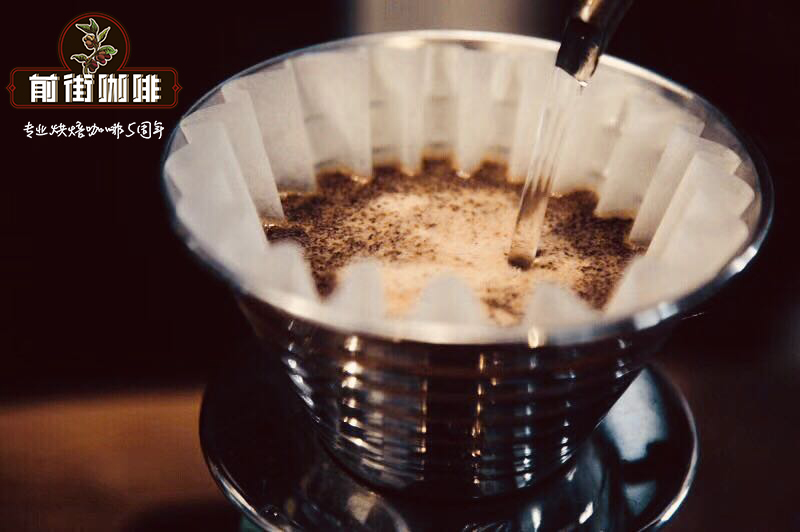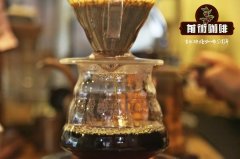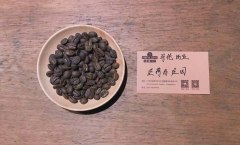Colombia coffee, the second largest coffee producer| Characteristics of Colombia hard beans

Professional coffee knowledge exchange more coffee bean information please follow the coffee workshop (Wechat official account cafe_style)
When it comes to Colombia, of course, the first thing that comes to mind is coffee. This is currently the third largest coffee producer in the world and has a very stable coffee quality.
Colombia is the second largest coffee producer after Brazil, the world's largest exporter of Arabica coffee beans and the world's largest exporter of washed coffee beans. Of all the coffee, it has the best balance, soft and smooth taste.
The National Coffee Management Association of Colombia, like the National Management Association of Kenya, is a model of coffee organization. Compared with other producing countries, Colombia is more concerned with developing products and promoting production. It is this, coupled with its superior geographical and climatic conditions, that makes Colombian coffee excellent in quality and delicious and famous all over the world. The status of coffee in Colombia is illustrated by the fact that all vehicles entering the country must be sprayed and sterilized so as not to inadvertently cause disease and damage coffee trees.
Planting altitude: 1000-2500 m
Planting varieties: in addition to Kaddura Caturra, Bourbon Bourbon, Tippika Typica and Parkmara, which are common in America, Colombia also has three disease-resistant varieties peculiar to Colombia, namely Castillo Castillo and Tabi Tabi Colombian Colombia with the same name as the country. Of course, there are also some rare and valuable varieties such as Rosa Gesha, small-grained Mocha Mocca, Rume Sudan Romer Sultan, Eugenioides Eugene Odes, Laurina pointed Bourbon, Maraguesa Mara Rosa (a natural hybrid between Malaggippe and Rosa).
Colombian coffee is mostly washed, and every small farmer family has a small special processor (Ecomill or Eco-Pulper). The harvested coffee fruit is poured into it, which removes not only the peel and pulp, but also most of the pectin, and only a very small amount of water is needed. Next, the shell beans with a small amount of pectin will go into a small pool or container, ferment overnight, loose the residual pectin, rinse with clean water the next day, and complete the washing process.
Colombian hard beans are characterized by large and uniform beans, full grains and dense texture. With few defective beans, the bean body is turquoise and the moisture content is high.
The dry aroma is obvious, with a beautiful sweet smell. The aroma of coffee is not as obvious as dry aroma, but it is relatively fresh and can vaguely smell the fragrance of flowers. The taste of sugarcane is more obvious, the bitter taste is not much, and the taste is relatively clean. But it is not rich enough and the thickness of the whole alcohol is moderate. Huigan good, can obviously feel the sweetness, the aftertaste is also relatively long.
、
END
Important Notice :
前街咖啡 FrontStreet Coffee has moved to new addredd:
FrontStreet Coffee Address: 315,Donghua East Road,GuangZhou
Tel:020 38364473
- Prev

Hermes in Coffee-Rose Summer Coffee | how much is Rose Summer Coffee | Rose Summer Coffee Price
Professional coffee knowledge exchange more coffee bean information please follow the coffee workshop (Wechat official account cafe_style) full-bodied and charming flower and fruit aroma, bright and charming fruit acid, long stay in the mouth and tongue rhyme this is the new king of boutique coffee, the upstart rosy summer that is popular all over the coffee circle. In the eyes of many coffee fans, Rose Summer is the well-deserved goddess of coffee. Rose summer
- Next

What water temperature should be used to brew fermented coffee in a barrel of San Jose rum, Colombia?
Professional coffee knowledge exchange more coffee bean information Please follow the coffee workshop (Wechat official account cafe_style) yesterday Qianjie Coffee introduced to you the rum barrel from Columbia's San Jose Manor to deal with this bean, so which water temperature should you choose when brewing? The aroma of this bean is relatively strong. What kind of flavor will appear if it is cooked at high temperature?
Related
- Detailed explanation of Jadeite planting Land in Panamanian Jadeite Manor introduction to the grading system of Jadeite competitive bidding, Red bid, Green bid and Rose Summer
- Story of Coffee planting in Brenka region of Costa Rica Stonehenge Manor anaerobic heavy honey treatment of flavor mouth
- What's on the barrel of Blue Mountain Coffee beans?
- Can American coffee also pull flowers? How to use hot American style to pull out a good-looking pattern?
- Can you make a cold extract with coffee beans? What is the right proportion for cold-extracted coffee formula?
- Indonesian PWN Gold Mandrine Coffee Origin Features Flavor How to Chong? Mandolin coffee is American.
- A brief introduction to the flavor characteristics of Brazilian yellow bourbon coffee beans
- What is the effect of different water quality on the flavor of cold-extracted coffee? What kind of water is best for brewing coffee?
- Why do you think of Rose Summer whenever you mention Panamanian coffee?
- Introduction to the characteristics of authentic blue mountain coffee bean producing areas? What is the CIB Coffee Authority in Jamaica?

